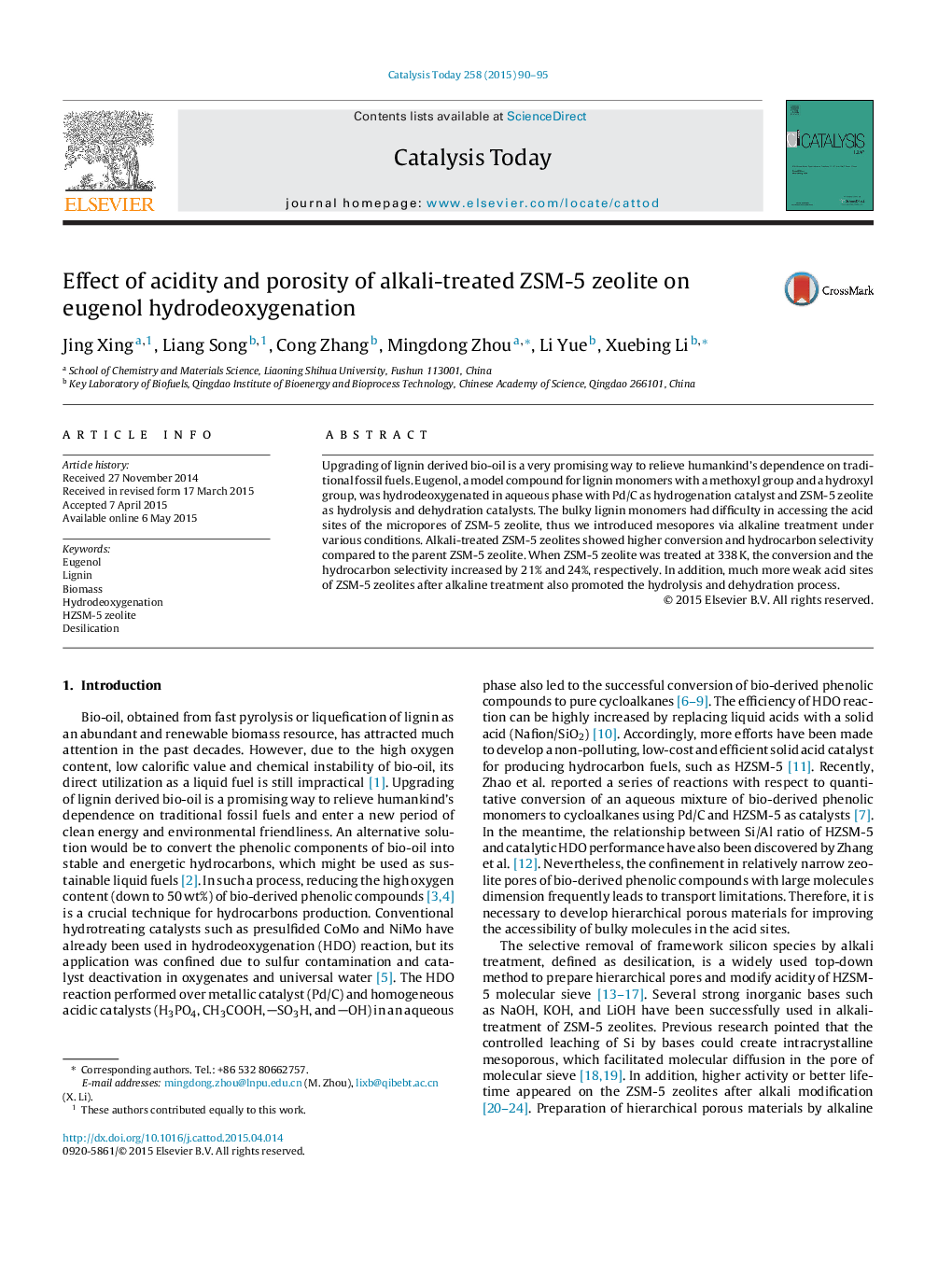| کد مقاله | کد نشریه | سال انتشار | مقاله انگلیسی | نسخه تمام متن |
|---|---|---|---|---|
| 53890 | 46988 | 2015 | 6 صفحه PDF | دانلود رایگان |

• Post-treatment has no effect on the intrinsic microporosity of their parent.
• Hydrocarbon selectivity increases with the increasing of weak acidity.
• Extra-mesopores created by desilication are beneficial to improve reaction activity.
• Desilication of ZSM-5 is favorable for hydrolysis and dehydration.
Upgrading of lignin derived bio-oil is a very promising way to relieve humankind's dependence on traditional fossil fuels. Eugenol, a model compound for lignin monomers with a methoxyl group and a hydroxyl group, was hydrodeoxygenated in aqueous phase with Pd/C as hydrogenation catalyst and ZSM-5 zeolite as hydrolysis and dehydration catalysts. The bulky lignin monomers had difficulty in accessing the acid sites of the micropores of ZSM-5 zeolite, thus we introduced mesopores via alkaline treatment under various conditions. Alkali-treated ZSM-5 zeolites showed higher conversion and hydrocarbon selectivity compared to the parent ZSM-5 zeolite. When ZSM-5 zeolite was treated at 338 K, the conversion and the hydrocarbon selectivity increased by 21% and 24%, respectively. In addition, much more weak acid sites of ZSM-5 zeolites after alkaline treatment also promoted the hydrolysis and dehydration process.
Figure optionsDownload high-quality image (96 K)Download as PowerPoint slide
Journal: Catalysis Today - Volume 258, Part 1, 1 December 2015, Pages 90–95